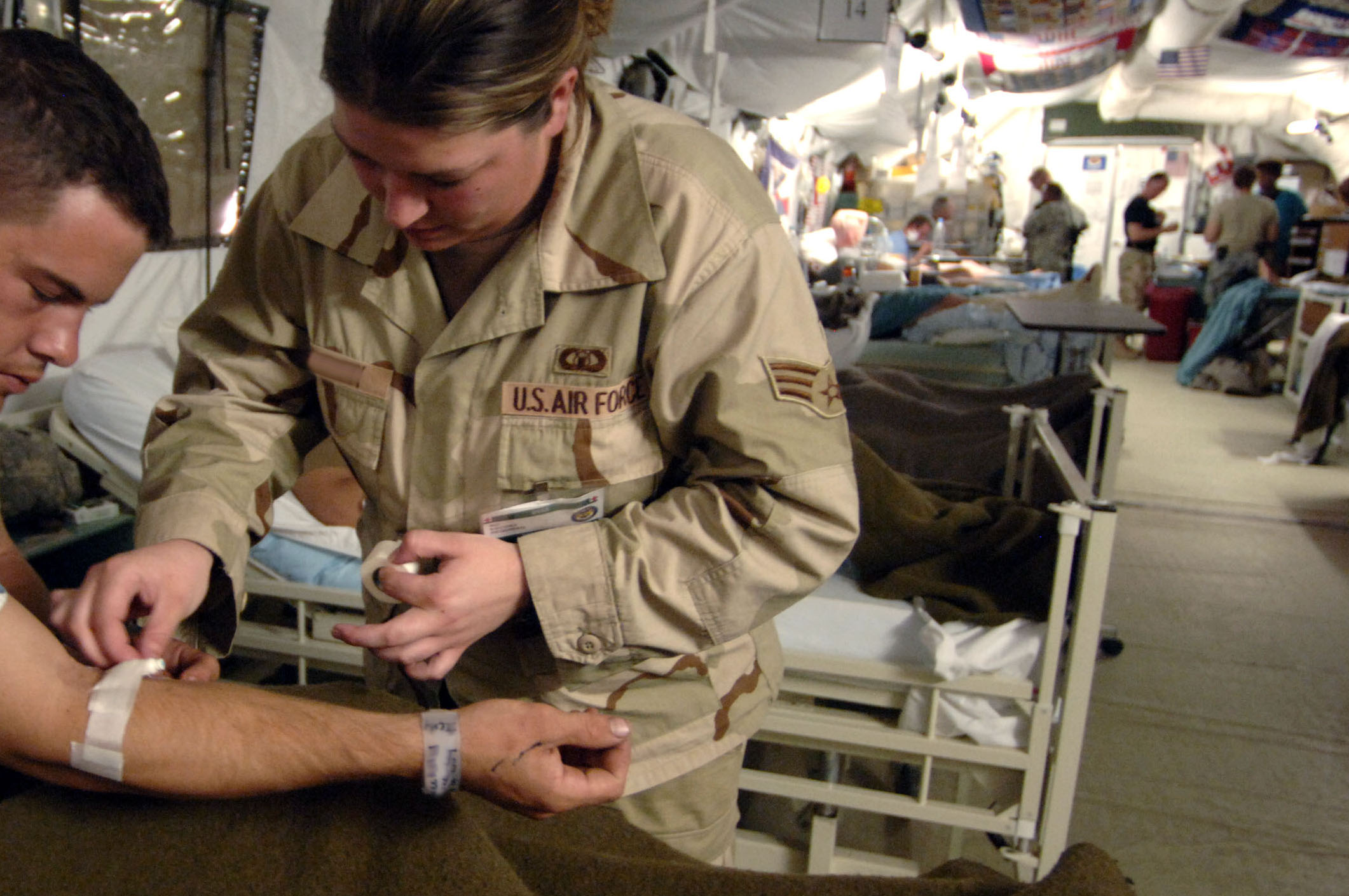What Would MacGuyver Do? Medical Excellence in Austere Settings
Host
Kate Joyce, MD, MPH
Henry Ford Hospital EM/IM, PGY4
Twitter: @sceneisnotsafe
Instagram: @sceneisnotsafe
EMRA*Cast Episodes
Your patient has an arterial bleed and a tenuous airway. You've got 1 unit of blood, no vent, and no hospital within hours. Welcome to the world of austere medicine. Host Kate Joyce, MD, MPH (@sceneisnotsafe) and USAF Lt Col Regan Lyon, MD, FACEP, discuss the challenges of treating patients in the most extreme scenarios.
Overview: "Austere" medical environments are very resource-limited environments that may be related to man-made or natural disasters, wilderness, military deployments, or a practice setting that is remote from higher levels of care. On this episode, host Kate Joyce (@sceneisnotsafe) chats with Lt Col Regan Lyon, MD, FACEP, of the USAF Special Operations Surgical Team about working in austere environments in the military context.
Take-Home Points
- Get comfortable with being uncomfortable. It's a fundamental requirement for working in austere environments.
- If you can't go without electricity, Wi-Fi, or bathing for several weeks, austere environments may not be for you.
- Emergency physicians are needed to work in austere environments not only in the military, but also in other parts of government, the private sector, and nonprofits (like Doctors Without Borders and the International Red Cross/Red Crescent).
- Wilderness medicine training is strongly recommended.
- If you need special ops training that goes beyond medicine (like tactical skills), this is almost always taught on the job.
- Pay attention to ALL duties in the ED, since they may be yours in the field! Learn to hang blood, mix medications, troubleshoot ventilators, etc.
General Austere Medicine Resources
- Austere and Emergency Medicine International
- Austere Emergency Medical Support (AEMS) Field Guide: Written for BLS/ACLS providers and published by the US Department of Homeland Security
- Where There Is No Doctor. A reference book developed in the 1970s, targeted at those in villages with no/minimal access to healthcare. Used worldwide and available in 100+ languages
Military
- US Air Force Special Operations Surgical Team
Application deadline: July 14, 2022. (Application form here) - Special Operations Medical Association
U.S. Government & Private Sector
- National Disaster Medical System, which includes Disaster Medical Assistance Teams (DMAT) and Surgical/Critical Care Teams
- There are a number of consulting groups (Valkyries Austere Medical Solutions, Austere Medical Physicians) that offer private-sector opportunities for EM physicians. Most require completion of residency as well as board certification.
Non-Governmental Organizations
- Doctors Without Borders/Medecins Sans Frontieres
NOTE: You must have COMPLETED residency, be permitted to work in the U.S., and be willing to commit to a 9-12 month deployment. - International Red Cross/Red Crescent
- Global Surgical and Medical Support Group
Wilderness Medicine
- Wilderness Medical Society
- Advanced Wilderness Life Support: Wilderness medicine for medical professionals, offers online and in-person options
- EMRA Fellowship Guide
- Research and Scholarship Opportunities in Wilderness Medicine
Peer-Reviewed Literature
- D'Angelo M, Losch J, Smith B, et al. Expeditionary Resuscitation Surgical Team: The US Army's Initiative to Provide Damage Control Resuscitation and Surgery to Forces in Austere Settings. J Spec Oper Med. 2017;17(4):76-79.
- Butler FK, Bennett B, Wedmore I. Tactical combat casualty care and wilderness medicine: advancing trauma care in austere environments. Emerg Med Clin North Am. 35(2):391-407.
- Kauvar DS, Yelon JA, Wilson A, Gaines BA, Martin MJ, Cannon JW. Perspectives on Competencies for Care in Austere Settings. J Trauma and Acute Care Surg. 2022 Apr 1. doi: 10.1097/TA.0000000000003630. Online ahead of print.
- Pingree CS, Newberry TR, McMains KC, Holt GR. Medical ethics in extreme and austere environments. HEC Forum. 2020;32(4):345-356.
- Anagnostou E, Michas A, Giannou C. Practicing military medicine in truly austere environments: what to expect, how to prepare, when to improvise. Mil Med. 2020;185(5-6):e656-e661.
- Baker JB, Northern DM, Frament C, et al. Austere Resuscitative and Surgical Care in Support of Forward Military Operations—Joint Trauma System Position Paper. Mil Med. 2021;186(1-2):12-17.





